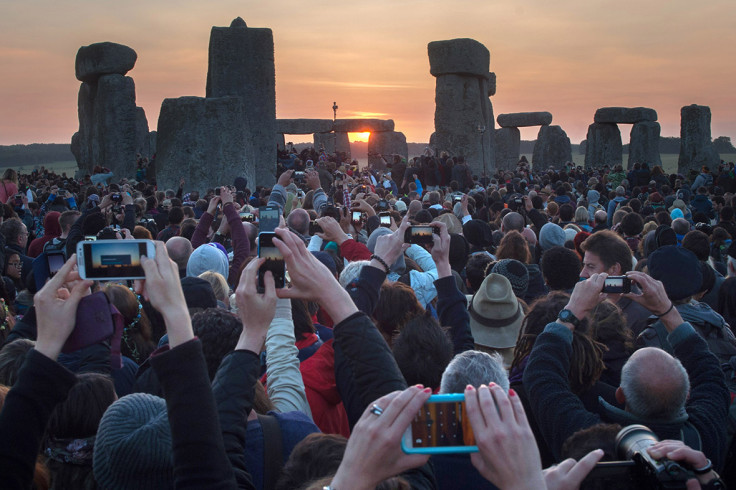Summer solstice 2015: How we have become so in tune with the 24-hour day

Every year we mark 21 June as the longest day of the year. But is our body aware of this on a physiological level? Does the average human know on a subconscious level that the day gets longer or shorter over the course of the year?
Not really. To the mind, a day is a day.
The circadian rhythm, which derives from the Latin term circa diem – about a day – is, to put it in its most basic terms, a 24-hour cycle that our mind goes through that helps us wake up in the morning and makes us sleepy come night time.
Although the primary cue for the clock is indeed light, which there has been a pleasantly reliable source of throughout evolution, our bodies have become so in tune with a 24-hour day that even if we were kept in a constant state of dark or light, it would barely affect our body clock.
For example, if you were to live on the North Pole, where it is six months light and the other half of the year dark, for a year without a wristwatch, you would intuitively get to know your circadian rhythm. It would tell you when it is the right time to go to bed and wake up, in spite of the natural lighting.
Unfortunately though there are a few complications with that. Your circadian rhythm is not a calendar day exactly, it is closer to 24 and a half hours. "So if we're under constant conditions," Stuart Peirson, associate professor at Oxford University and part of the Sleep and Circadian Neuroscience Institute, told IBTimes UK, "we'll wake up half an hour later every day".
Hear it straight from the expert
Stuart Peirson, associate professor at Oxford University and part of the Sleep and Circadian Neuroscience Institute: "We didn't know a great deal about the basic mechanism of the circadian clock until the 1960s. In the 1960s, they identified that it was a part of our brain and part of the hypothalamus called the suprachiasmatic nuclei (SCN) that forms the master clock in the brain, and if that's damaged then we completely lose our rhythmic behaviour.
"But the actual mechanism of the clock wasn't shown until the late 1990s where it was discovered that, [even if separated from the vast SCN network], the individual neurons of the master clock in the brain are all capable of telling time."
The science behind it is fascinating. It anticipates everything. It knows when you are about to wake up and sends a surge of cortisol – a steroid hormone that works to increase blood sugar – throughout your body, and tells you when to go to sleep at night.
"You're changing your physiology going from sleep to awake, which doesn't happen instantly. Your body is getting you ready to wake up in advance of when you have to. It actually saves time by being able to change your physiology in advance," says Peirson.
"We've evolved for billions of years and evolved in an environment that can change quite dramatically over a 24-hour cycle, and as a result our bodies have evolved a cycle that matches that of the earth."
It would be easy to think that, thanks to the complexity of the human body, this is something that is exclusive to us. It is not. Everything from man to bacteria has a circadian rhythm.
"It's the same mechanism in fruit flies, and we haven't shared a common ancestor with them in over half a billion years!" Peirson added.
But if longer hours of sunlight do not affect your circadian rhythm, then what does?
Peirson: "The biggest factors are things like jet lag and shift work. On late shift work, we're trying to operate when our bodies are basically telling us that we should be asleep, which alters our concentration and attention. In turn, our physiology is being changed so that our digestive systems and metabolism carry on working.
"A number of studies have shown that people who've been on shift work for long periods are actually more at risk of things like cardiovascular disease."
We experience a similar issue when travelling across time zones. If you were to travel to New York, which is currently five hours behind the UK, in the short run "our clock thinks it's one time whereas the environment in that new time zone is completely different. We have a mismatch between our internal clock and the external clock, which is why you don't feel hungry at the right time, why we can't sleep at night and why we wake up early in the morning."
The reason it goes back however is because our circadian rhythm is able to adapt to the new settings and can shift our clock by around an hour per day. "So if you go for a week's trip, you've just about caught up by the time you have to fly back."
© Copyright IBTimes 2025. All rights reserved.





















